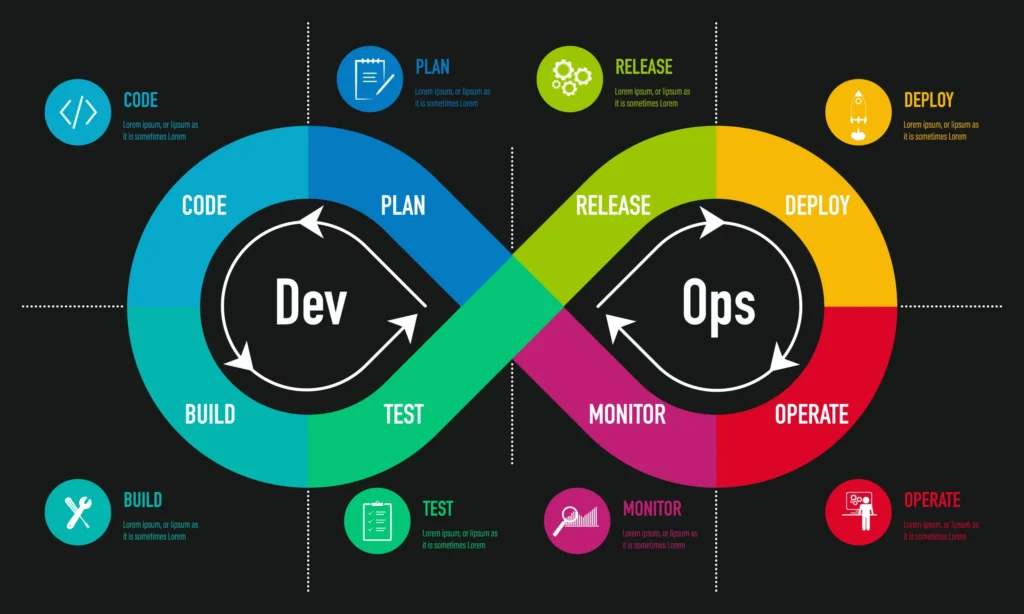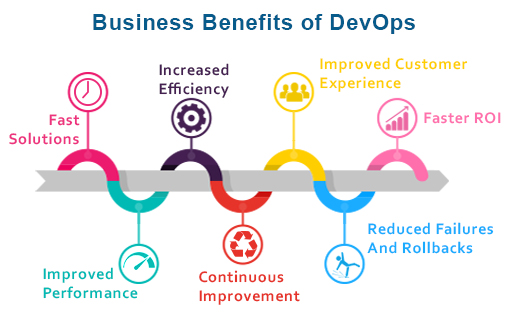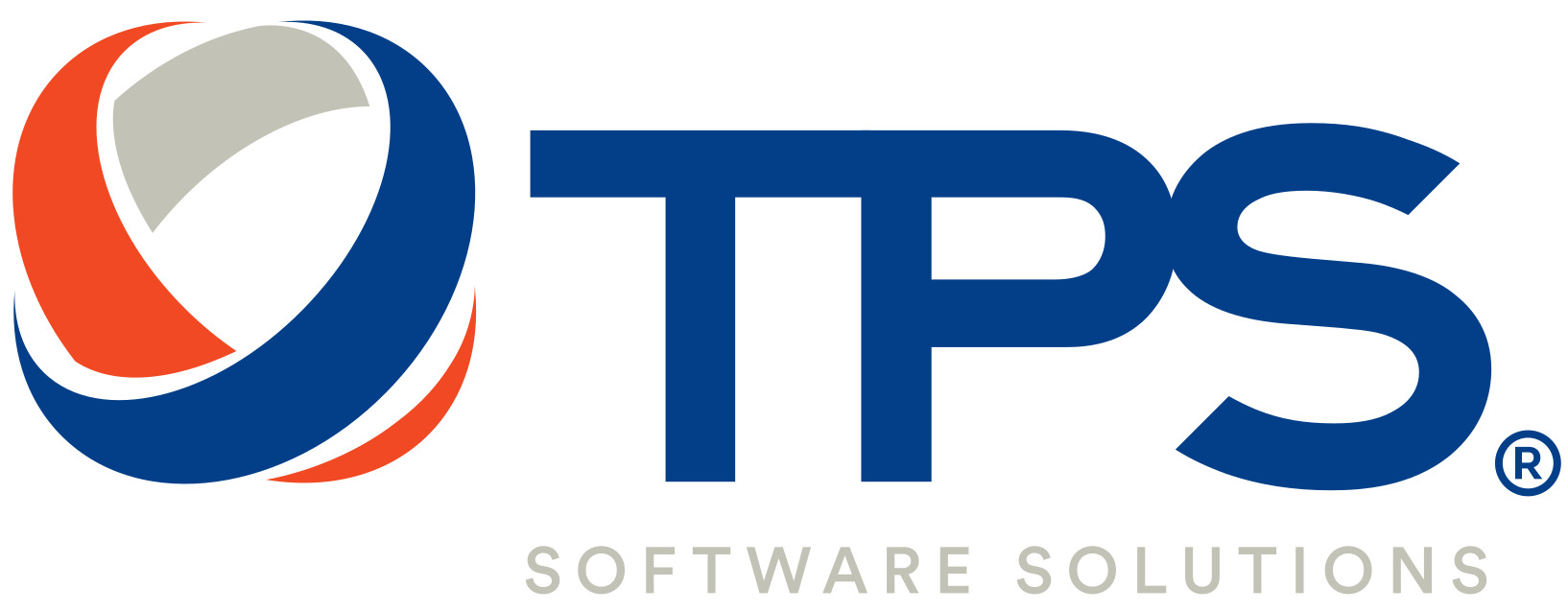Introduction
Digital transformation has become a strategic imperative for organizations looking to leverage technology to drive growth, enhance customer experiences, and improve operational efficiency. In the midst of this transformative journey, one crucial factor has emerged as a key enabler: DevOps.
DevOps, a combination of “development” and “operations,” is an approach that emphasizes collaboration, communication, and integration between software development teams and IT operations. It aims to streamline the software delivery process, increase deployment speed, and ensure the stability and reliability of applications. However, DevOps is not just a technical methodology; it is a fundamental mindset shift that aligns people, processes, and technology to achieve organizational goals.
In this article, we will explore the importance of DevOps in digital transformation. We will delve into the critical role DevOps plays in driving organizational success, the benefits it brings, and the challenges and best practices in implementing DevOps for digital transformation.

The Role of DevOps in Digital Transformation
Streamlined Communication and Collaboration
Effective communication and collaboration between teams are crucial for successful digital transformation. DevOps plays a pivotal role in breaking down traditional silos that often exist between development and operations teams.
Breaking Down Silos between Development and Operations Teams
DevOps promotes a shared responsibility and cross-functional collaboration between developers, testers, infrastructure specialists, and operations personnel. By fostering a culture of collaboration and shared goals, DevOps eliminates the barriers that hinder effective communication and cooperation.
Facilitating Cross-Functional Collaboration
DevOps encourages the involvement of all stakeholders throughout the software development lifecycle. Developers work closely with operations teams, sharing insights, requirements, and feedback. This collaboration helps identify potential issues early on, leading to faster problem resolution and improved overall efficiency.
Accelerating Software Development and Deployment
Speed is a critical factor in today’s digital landscape. DevOps practices enable organizations to accelerate the software development and deployment process, reducing time-to-market and enabling faster iteration cycles.
Continuous Integration and Continuous Deployment (CI/CD)
DevOps emphasizes the implementation of CI/CD pipelines, which automate the build, integration, testing, and deployment of software. By automating these processes, organizations can achieve frequent and reliable software releases, reducing the time and effort required for manual tasks.
Automated Testing and Quality Assurance
DevOps promotes the integration of automated testing and quality assurance throughout the development lifecycle. Automated testing ensures that software is thoroughly tested for functionality, performance, and security, minimizing the risk of errors and reducing time-consuming manual testing processes.
Enhancing Scalability and Resilience
Digital transformation often involves scaling infrastructure to meet evolving demands and ensuring system resilience. DevOps provides practices and tools that enable organizations to handle scalability challenges effectively.
Infrastructure as Code (IaC)
DevOps leverages Infrastructure as Code, allowing organizations to define and provision infrastructure resources programmatically. This approach enables infrastructure to be treated as code, providing the ability to version, test, and deploy infrastructure changes quickly and consistently.
Auto Scaling and Load Balancing
DevOps encourages the use of auto-scaling and load balancing techniques to dynamically adjust resources based on demand. These practices ensure that applications can handle increased traffic and maintain optimal performance, contributing to a positive user experience.
By leveraging streamlined communication and collaboration, accelerating software development and deployment, and enhancing scalability and resilience, DevOps empowers organizations to navigate the complexities of digital transformation successfully. In the next section, we will explore the benefits that DevOps brings to the table during this transformative journey.
Benefits of DevOps in Digital Transformation
DevOps adoption in the context of digital transformation offers numerous benefits that can drive organizational success and deliver tangible results. Let’s explore some of the key advantages that DevOps brings to the table:
Improved Time-to-Market
With the implementation of DevOps practices, organizations can significantly reduce the time required to develop, test, and deploy software. Continuous integration and continuous deployment (CI/CD) pipelines automate the process, enabling faster and more frequent releases. This accelerated time-to-market allows organizations to seize opportunities swiftly, respond to customer needs promptly, and gain a competitive edge in the digital landscape.
Enhanced Product Quality and Stability
DevOps emphasizes the integration of automated testing, quality assurance, and feedback loops throughout the software development lifecycle. By detecting and addressing issues early on, organizations can ensure higher product quality and stability. Continuous monitoring and real-time feedback enable teams to identify and resolve issues promptly, leading to improved customer satisfaction and reduced downtime.
Increased Efficiency and Cost Reduction
DevOps practices streamline and automate repetitive tasks, reducing manual effort and minimizing the risk of human error. Automation enables teams to focus on higher-value activities and strategic initiatives. Additionally, the optimization of resource allocation through infrastructure automation and auto-scaling helps organizations achieve cost efficiencies by aligning resources with demand. By eliminating waste and optimizing processes, DevOps contributes to cost reduction and improved operational efficiency.
Higher Customer Satisfaction and Experience
DevOps plays a critical role in delivering a superior customer experience. The rapid deployment of new features and bug fixes, combined with higher product quality and stability, results in a smoother and more satisfying user experience. By continuously incorporating customer feedback into development cycles, organizations can align their products and services with customer needs, preferences, and expectations, ultimately driving higher customer satisfaction and loyalty.
Cultural Transformation and Collaboration
Implementing DevOps requires a cultural shift within organizations, promoting collaboration, trust, and shared responsibility. By breaking down silos between teams and fostering a collaborative and inclusive work environment, DevOps facilitates better communication, knowledge sharing, and cross-functional collaboration. This cultural transformation leads to improved teamwork, employee engagement, and overall organizational performance.

Challenges and Best Practices in Implementing DevOps for Digital Transformation
Implementing DevOps in the context of digital transformation can bring about transformative outcomes. However, organizations may encounter various challenges along the way. Understanding these challenges and adopting best practices can greatly contribute to successful DevOps implementation. Let’s explore some of the key challenges and recommended best practices:
Cultural Shift and Organizational Change
One of the primary challenges in DevOps implementation is cultural resistance and organizational change. DevOps requires a shift in mindset, breaking down traditional silos and fostering collaboration and shared responsibility.
Best Practices
- Leadership Support: Obtain executive buy-in and support to drive cultural transformation and encourage collaboration across teams.
- Cross-functional Teams: Foster the formation of cross-functional teams to break down silos and promote collaboration.
- Training and Education: Provide training and education programs to help employees understand and embrace the DevOps principles and practices.
- Continuous Learning: Foster a learning culture where teams are encouraged to experiment, learn from failures, and continuously improve.
Technology and Tooling Considerations
Selecting the right tools and technologies to support the DevOps journey can be challenging. The technology landscape is vast, and integration and compatibility issues may arise when implementing new tools alongside existing systems.
Best Practices
- Tool Evaluation: Conduct thorough research and evaluations to identify tools that align with your organization’s needs and goals.
- Standardization: Establish standard tooling and processes across teams to ensure consistency and seamless integration.
- Automation: Leverage automation tools to streamline processes, reduce manual effort, and increase efficiency.
- Scalability and Flexibility: Choose tools and technologies that can scale with your organization’s needs and adapt to future requirements.
Continuous Learning and Improvement
Continuous improvement is a fundamental aspect of DevOps, but organizations may struggle to establish a culture of continuous learning and improvement.
Best Practices
- Metrics and Measurement: Define key metrics to measure the effectiveness and impact of DevOps practices. Regularly monitor and analyze these metrics to identify areas for improvement.
- Feedback Loops: Establish feedback loops and mechanisms to gather input from customers, end-users, and internal teams. Utilize this feedback to drive iterative improvements.
- Retrospectives: Conduct regular retrospectives to reflect on successes and challenges, identify areas for improvement, and implement necessary changes.
- Knowledge Sharing: Encourage knowledge sharing and create platforms for teams to share insights, best practices, and lessons learned.
Collaboration and Communication Strategies
Effective collaboration and communication are essential for successful DevOps implementation. However, organizations may face communication gaps, misalignment, or lack of transparency.
Best Practices
- Cross-functional Communication: Establish open channels of communication between teams, promoting transparency, sharing of information, and alignment of goals.
- Collaboration Tools: Utilize collaboration tools, such as chat platforms, project management tools, and documentation repositories, to facilitate real-time communication and knowledge sharing.
- Agile Practices: Embrace agile methodologies, such as Scrum or Kanban, to promote frequent communication, collaboration, and visibility into work progress.
- DevOps Advocates: Appoint DevOps advocates or champions within teams to promote collaboration, resolve conflicts, and drive the DevOps culture.
Conclusion
Digital transformation has become an imperative for organizations seeking to thrive in today’s fast-paced and competitive business landscape. In this transformative journey, DevOps emerges as a crucial enabler, offering a wide range of benefits and driving successful digital transformation outcomes.
By implementing DevOps, organizations can navigate the complexities of digital transformation, accelerate their time-to-market, improve product quality, enhance operational efficiency, and ultimately achieve their business objectives. As the digital landscape continues to evolve, embracing DevOps becomes essential for organizations aspiring to thrive and succeed. It is time for organizations to embrace the power of DevOps and embark on their transformative journey towards digital excellence.













